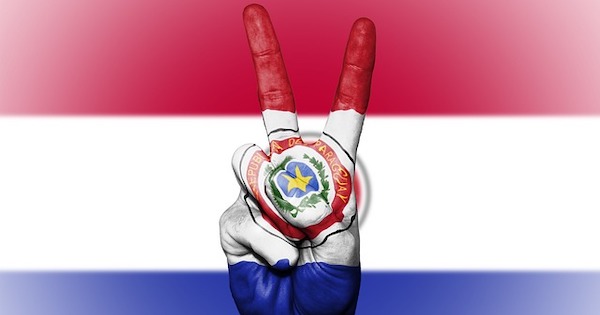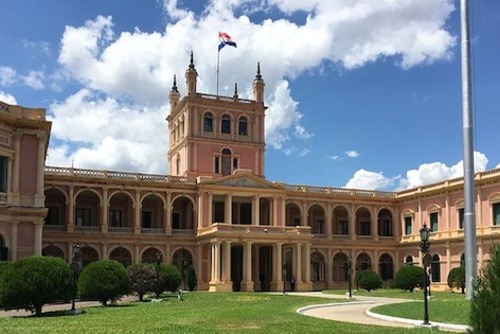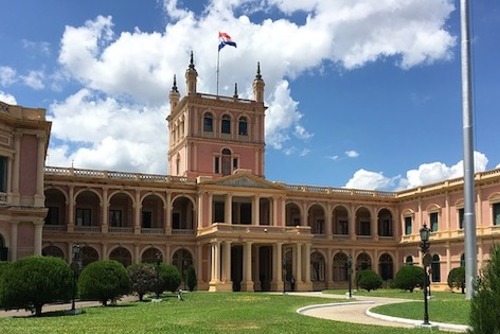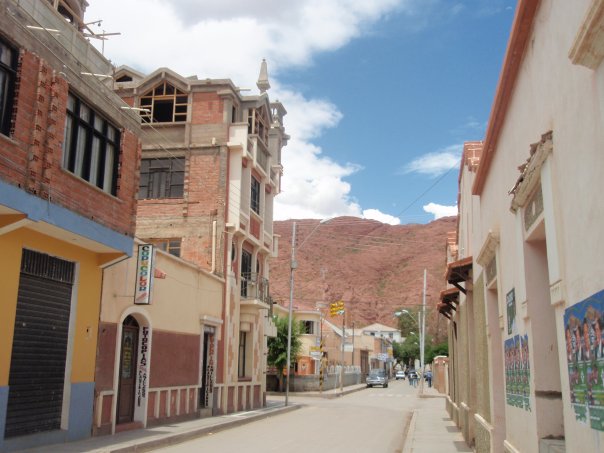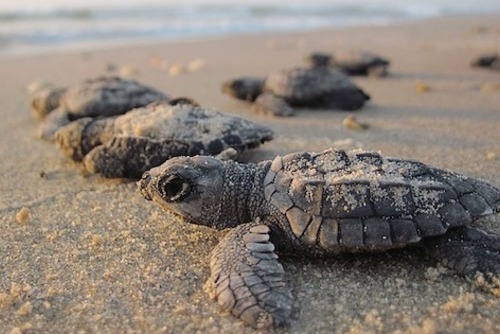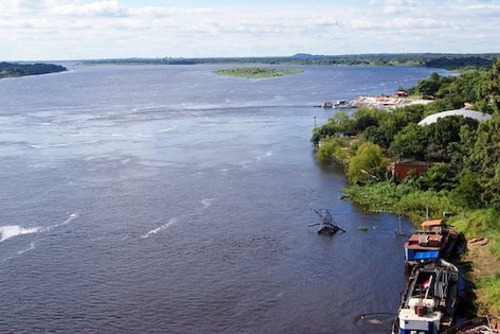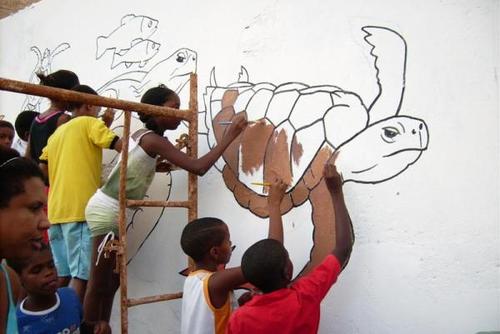A Guide to Volunteering in Paraguay
Most organisations will require you to be aged 17+, be in good health and be open to the idea of living and working in a different country. Students and non-students can apply, you might want to learn some Spanish or local Guarani words and phrases to improve communication with local people.
Most in country staff speak English. If you have any previous skills these will be put to good use but if you don't, full training and orientation is usually provided on arrival. There is no best time to apply, summer can get very hot and wet so avoid if you are not a fan of sunny humid conditions and also July is the usually the coldest month of the year.
You can also combine experiences by applying to volunteer in Brazil or joining a volunteer program in Argentina too.
Top Reasons to Volunteer in Paraguay
When researching an amazing experience volunteering in South America, Paraguay might not be top of the places you think about. This country is less popular and also less developed compared to nearby nations but there are so many reasons why we think you might want to consider this country.
You will get a really authentic experience, visit a country with natural beauty, meet friendly locals and experience the time of your life. You will also be able to make a difference and improve your language skills whilst in your spare time you will be able to explore the country.
Location of Projects
You can join placements throughout the country in places like San Lorenzo and the capital city Asunción. Placements with animals and nature are usually in rural areas.
Types of Volunteer Projects in Paraguay
Large international humanitarian organisations like Habitat for Humanity, WWF and Peace Corps have been placing volunteers in Paraguay for a number of years. Amigos de las Americas is a great organisation if you are currently in college and looking to volunteer in South America or in the developing world.
Community, Education & Teaching Volunteer Work in Paraguay
Paraguay has a population of around 6,550,000 people and around 30-40% live below the world poverty line which is quite a shocking stat. You can play a role in working to improve infrastructure and living conditions for local people, work on education or healthcare efforts. Some projects allow you to help marginalized and disadvantaged youngsters in the capital city whilst there are schools throughout the country which provide placements and internships to international participants.
NGO's
Some programs have been established to help people advance technically with the aim of increasing employment prospects, you could help with professional training and business planning. Local NGO's also need help with marketing their organisations both on and offline, Fundacion Paraguaya and Centro Educativo Mbaracayu are two organisations we recommend, their aims are to help people and entrepeneurs get ideas off the ground and to get assistance with job hunting.
Conservation & Volunteering with Animals in Paraguay
Conservation projects in Paraguay are popular, this destination has spectacular forests and animals which are unique to the country.
How to Apply
You can choose to apply through a sending agency or direct with a local charity or NGO. If you are looking for low cost or free volunteering programs in Paraguay then you will need to apply with a local NGO, usually you will need to pay for food and accommodation separately. Some international companies offer structured programs which include transfers, meals, board and also group flights but you will need to pay a fee. You might also be required to, or want to make a donation.
Paraguay Volunteer Reviews & Testimonials
Have you ever participated on a volunteering program in Paraguay? Get in touch to share your experience today.
Volunteering on the Paraguay Forest Conservation Project
Overall I had a great time volunteering at the National Park helping with conservation efforts, it was a real experience and I learnt a lot. I spent a month there, all arranged at fairly short notice as I had unexpectedly got some time off work - I wasn't sure what to expect and had never been to South America before.
The trip there was fairly straightforward although made slightly easier for me as 2 of the scientists travelled with me from Asuncion. It was a 6 hour bus to Encarnacion where I met Paul the chief scientist, then another 1 hour bus ride followed by 1.5 hours in the 4x4 - it takes a full day. The base is right on the edge of the forest and consists of a farm, a hut for the forest guards who were very friendly and a couple of other huts.
Accommodation was better than I expected, but fairly basic. I had my own room in a cabin which was inside a large hangar (a comfortable bed with all bedding provided) and there was shared bathroom (hot water most of the time) etc. You could wash your clothes yourself or for a very small charge get them washed and ironed for you (well worth it). All meals were provided in the farm house and were good - never went hungry and plenty of variety. Given more time I would have made an effort to learn some before I went - in saying that I managed.
Language was not a problem when working as Paul and all the other scientists spoke English. In terms of the work it was varied and you could set your own pace and take a breather when you felt like it, if you wanted a day off, or didn't like something it was not a problem (I never took a break).
A typical day would be up around 7, breakfast and then go on a trek, which might be to observe a specific bird nest, or take some sound recordings in the forest, or just to explore the forest. Lunch at 12, and then usually a siesta until 4 (it was getting up to 40 Celsius when I was there and getting very humid). Following that, some work in the shade (e.g. measuring and identifying butterflies that we had caught in the morning).
Then around 5.30 we would go and check on some bird nests, measuring eggs and chicks, taking photos etc - for one of the nests this involved going out on the lake in the rowing boat. 8pm was dinner and after that we would sometimes put the net up to catch bats, or go down to the lake to see the capivara and frogs (the sound is deafening). Then bed around 11. Mosquitoes etc. were not a problem and there was a fan in the room for when it was hot. It would rain every 4 or 5 days which would cool things down.
The guards go deep into the forest most days and we went with them occasionally so that we could see more of the forest. Once a week the guards would have a BBQ which we sometimes joined and was good. Also there is a small 2 seater plane used for surveying the forest and find illegal loggers - it was a real highlight to go up in it and see the expanse of the forest.
Other highlights include seeing (& hearing) the monkeys, catching and holding bats, getting to within a few feet of the humming birds, seeing a snake at close quarters, the lake at night, and the sheer variety of wildlife that is on offer. The place is remote (part of the attraction for me), there is no TV or radio (ipod was a life saver). There is a PC you can use to get on the internet (small charge) although it is very slow. Strangely enough though, you can just get reception for your mobile.
Once a week the guards went to the local village (an hour away) and would get anything you needed toothpaste, beer..... In the month I was there I spent about $100 on the flight, washing, internet use and beer for the month. The scientists (Alberto, Lauri and Paul) that I worked with were excellent. Friendly, patient and always willing to spend time with me. They trust you to do real worthwhile stuff e.g. after we caught a load of butterflies, Paul gave a 'lesson' in how to distinguish them and then using a reference book we would identify them, then measure them and record all the details in a database.
I took loads of photos whilst I was there and many of them are on the Fauna Paraguay web site, and I will be credited on some of the papers from the work we did that are to be published in journals. I was looking for a career break, something totally different from my work (IT consultant) and this fitted the bill. But it also taught me an awful lot about identifying so many different creatures, and raised my awareness of the plight of the forest. Since I got back home I have started doing talks about my experiences and I keep in touch with Paul. I would definitely go back but next time would learn Spanish in Paraguay first. Finally, thank-you again for your support and facilitating it all, would definitely recommend you to any potential volunteers!
By Chris E, UK

